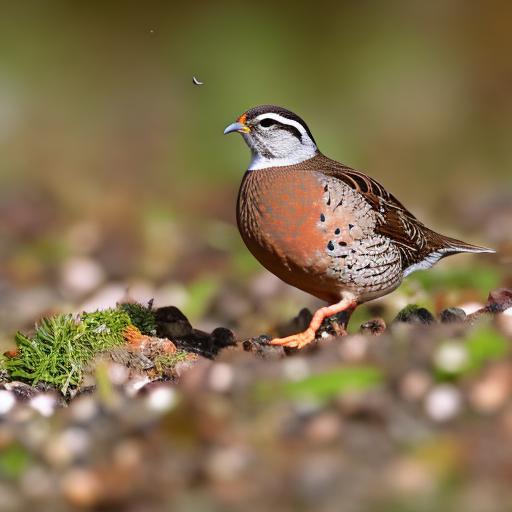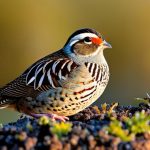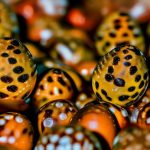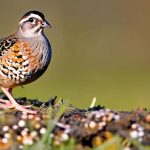Quail keeping has become increasingly popular in the UK due to the small size of these birds, their low maintenance requirements, and the delicious eggs they produce. Quail are small ground-dwelling birds that are part of the pheasant family. They are known for their ability to lay a large number of eggs, making them a popular choice for small-scale egg production. Quail are also kept for their meat, which is considered a delicacy in many parts of the world. When it comes to keeping quail in the UK, it’s important to understand the basic requirements for housing, feeding, and breeding these birds.
Quail require a secure and predator-proof housing to protect them from foxes, rats, and other potential threats. They also need access to a suitable outdoor area where they can scratch and forage for food. Quail are social birds and should be kept in groups to prevent stress and loneliness. It’s important to provide them with a suitable environment that mimics their natural habitat, including plenty of hiding spots and dust baths. Additionally, quail need access to clean water at all times, as well as a balanced diet to ensure their health and wellbeing. Understanding these basic requirements is essential for successfully keeping quail in the UK.
Key Takeaways
- Quail are small ground-dwelling birds that are relatively easy to keep in the UK.
- Quail require a secure and well-ventilated housing with access to outdoor space for dust bathing and foraging.
- Quail need a balanced diet of commercial quail feed, supplemented with greens, fruits, and grit.
- Regular health checks, proper hygiene, and vaccination are essential for preventing diseases in quail.
- Breeding and rearing quail requires careful monitoring of temperature, humidity, and nutrition to ensure healthy chicks.
Choosing the Right Housing and Environment for Quail
When it comes to housing and environment for quail in the UK, there are several important factors to consider. Quail housing should provide protection from predators, as well as adequate space for the birds to move around and exhibit natural behaviors. A secure coop or aviary with a solid floor is essential to prevent predators from digging underneath and gaining access to the birds. The coop should also have good ventilation to prevent the buildup of ammonia from droppings, which can lead to respiratory issues in quail.
In addition to a secure housing structure, quail also need access to an outdoor area where they can forage for insects, seeds, and vegetation. This outdoor area should be protected from predators and provide plenty of hiding spots for the quail to feel safe. It’s important to provide a variety of natural materials such as straw, hay, and branches for the quail to use for nesting and dust bathing. Creating a natural environment for quail will help reduce stress and promote their overall wellbeing. By choosing the right housing and environment for quail in the UK, you can ensure that your birds are happy, healthy, and productive.
Feeding and Nutrition for Quail in the UK
Feeding and nutrition are crucial aspects of keeping quail in the UK. Quail require a balanced diet that provides them with the essential nutrients they need to stay healthy and productive. A good quality commercial quail feed is a convenient option that provides all the necessary nutrients in the right proportions. Quail feed should contain a high percentage of protein to support egg production and overall health. In addition to commercial feed, quail can also be fed a variety of kitchen scraps, greens, and insects to supplement their diet.
It’s important to provide quail with access to clean water at all times, as they have a high water requirement, especially when laying eggs. Water should be provided in shallow containers that are easy for the quail to access without getting wet or soiled. In addition to food and water, quail also benefit from access to grit, which helps them digest their food by grinding it in their gizzards. Providing a balanced diet and ensuring access to clean water and grit is essential for meeting the nutritional needs of quail in the UK.
Health and Disease Management for Quail
Maintaining the health of quail is essential for successful quail keeping in the UK. Regular observation of your birds is important to detect any signs of illness or injury early on. Common health issues in quail include respiratory infections, parasites, and egg-related problems. It’s important to keep the quail housing clean and dry to prevent the buildup of bacteria and parasites that can lead to disease. Good ventilation is also important to prevent respiratory issues in quail.
In addition to good husbandry practices, it’s important to have a good relationship with a poultry veterinarian who can provide advice on preventative health measures and treatment options if needed. Vaccinations may be recommended depending on the specific health risks in your area. It’s also important to quarantine any new birds before introducing them to your existing flock to prevent the spread of disease. By implementing good biosecurity measures and working closely with a poultry veterinarian, you can effectively manage the health of your quail in the UK.
Breeding and Rearing Quail in the UK
Breeding and rearing quail can be a rewarding aspect of quail keeping in the UK. Quail reach sexual maturity at around 6-8 weeks of age, at which point they will start laying eggs. If you’re interested in breeding quail, it’s important to provide them with suitable nesting boxes filled with soft bedding material such as straw or shredded paper. Collecting and storing eggs properly is essential for successful incubation and hatching.
Quail eggs can be hatched using an incubator or by allowing broody hens to sit on them. Incubation typically takes around 17 days, after which the chicks will hatch. It’s important to provide newly hatched chicks with a warm, draft-free environment and access to chick starter feed and clean water. Rearing quail chicks requires careful attention to their nutritional needs and protection from predators. By understanding the breeding and rearing process, you can successfully expand your quail flock in the UK.
Legal and Regulatory Considerations for Keeping Quail
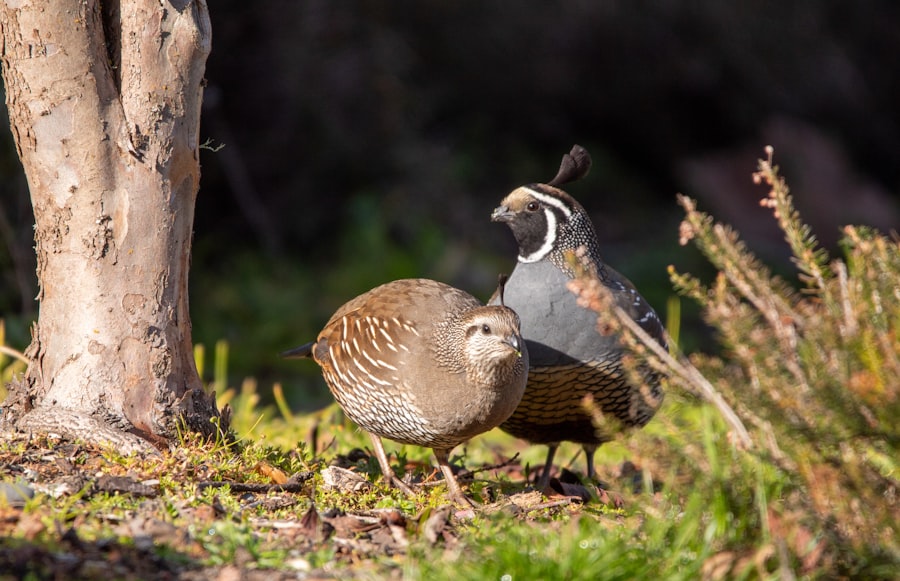
When keeping quail in the UK, it’s important to be aware of the legal and regulatory considerations that apply to poultry keeping. In some areas, there may be restrictions on keeping poultry due to zoning regulations or local bylaws. It’s important to check with your local council or agricultural authority to ensure that you are compliant with any regulations that may apply to keeping quail.
In addition to local regulations, there may also be national regulations that apply to poultry keeping in the UK. These regulations may cover issues such as biosecurity measures, disease control, and animal welfare standards. It’s important to stay informed about any legal requirements that apply to keeping quail in order to ensure that you are operating within the law.
Tips for Successfully Keeping Quail in the UK
Successfully keeping quail in the UK requires attention to detail and good husbandry practices. Providing a suitable housing environment that protects quail from predators and provides access to natural materials is essential for their wellbeing. Additionally, ensuring that quail have access to a balanced diet, clean water, and grit will help meet their nutritional needs.
Regular observation of your quail is important for detecting any signs of illness or injury early on. Working closely with a poultry veterinarian can provide valuable advice on preventative health measures and treatment options if needed. By understanding the breeding and rearing process, you can successfully expand your quail flock in the UK.
Being aware of legal and regulatory considerations is important for ensuring that you are compliant with any regulations that may apply to keeping quail in your area. By staying informed about legal requirements, you can operate within the law while enjoying the benefits of keeping quail in the UK.
In conclusion, keeping quail in the UK can be a rewarding experience when done with care and attention to detail. By understanding the basic requirements for housing, feeding, breeding, and health management, you can successfully keep quail in the UK while complying with any legal regulations that may apply. With proper care and management, quail can thrive and provide delicious eggs or meat for your enjoyment.
If you’re interested in learning more about keeping quail in the UK, you might also want to check out this informative article on creating the perfect floor for your chicken coop. The article provides valuable insights into maintaining a clean and comfortable environment for your poultry, which can be equally beneficial for quail. You can read the full article here.
FAQs
What are the benefits of keeping quail in the UK?
Quail are relatively easy to care for and can provide a sustainable source of eggs and meat for small-scale farmers and homesteaders in the UK. They also require less space and resources compared to other poultry, making them a practical option for those with limited land.
What do quail need to thrive in the UK?
Quail require a secure and predator-proof enclosure, access to clean water, a balanced diet, and protection from extreme weather conditions. They also benefit from a quiet and stress-free environment.
What are the legal requirements for keeping quail in the UK?
In the UK, quail keepers must comply with the Animal Welfare Act 2006, which outlines the legal responsibilities for the care and welfare of animals. Additionally, those who keep quail for commercial purposes may need to register with the appropriate government agencies.
What should I consider before starting a quail farm in the UK?
Before starting a quail farm in the UK, it’s important to consider the local regulations and zoning laws, as well as the availability of suitable housing, feed, and veterinary care for the quail. Additionally, potential quail keepers should assess the market demand for quail products in their area.
What are some common challenges of keeping quail in the UK?
Common challenges of keeping quail in the UK include predator attacks, disease management, and maintaining optimal living conditions for the quail. Additionally, sourcing high-quality feed and managing waste disposal can also be challenging for quail keepers.
Meet Walter, the feathered-friend fanatic of Florida! Nestled in the sunshine state, Walter struts through life with his feathered companions, clucking his way to happiness. With a coop that’s fancier than a five-star hotel, he’s the Don Juan of the chicken world. When he’s not teaching his hens to do the cha-cha, you’ll find him in a heated debate with his prized rooster, Sir Clucks-a-Lot. Walter’s poultry passion is no yolk; he’s the sunny-side-up guy you never knew you needed in your flock of friends!

